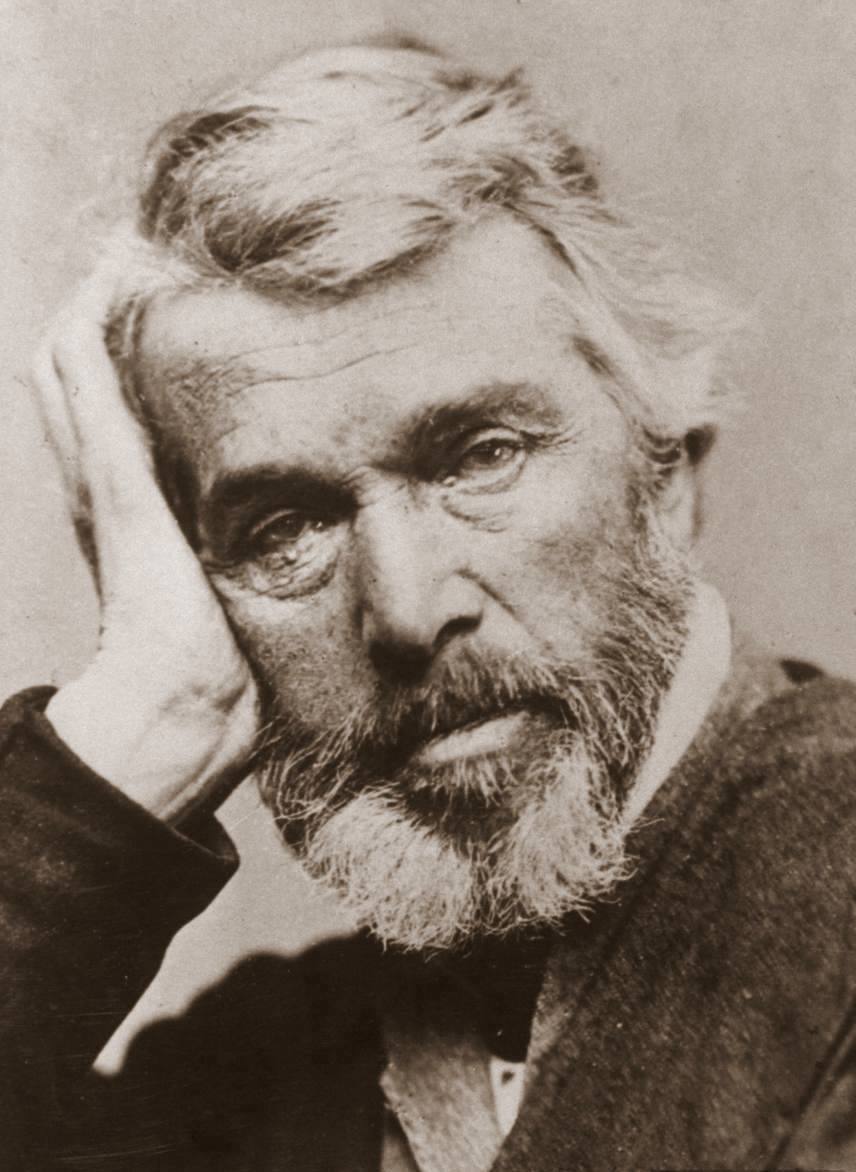Thomas Carlyle Quotes
1840s, Heroes and Hero-Worship (1840), The Hero as Divinity
1850s, Latter-Day Pamphlets (1850), Downing Street (April 1, 1850)
1820s, Signs of the Times (1829)
1850s, Latter-Day Pamphlets (1850), Stump Orator (May 1, 1850)
1840s, Heroes and Hero-Worship (1840), The Hero as Poet
1840s, Heroes and Hero-Worship (1840), The Hero as Man of Letters
Latter Day Pamphlet, No. 5. (1850).
1820s, Critical and Miscellaneous Essays (1827–1855)
“History a distillation of Rumour.”
Pt. I, Bk. VII, ch. 5.
1830s, The French Revolution. A History (1837)
1860s, On The Choice Of Books (1866)
“He who would write heroic poems should make his whole life a heroic poem.”
Life of Schiller.
1820s, Critical and Miscellaneous Essays (1827–1855)
1840s, Heroes and Hero-Worship (1840), The Hero As King
1840s, Heroes and Hero-Worship (1840), The Hero as Divinity
“With stupidity and sound digestion man may front much.”
Bk. II, ch. 4.
1830s, Sartor Resartus (1833–1834)
“Wonder, indeed, is, on all hands, dying out: it is the sign of uncultivation to wonder.”
1820s, Signs of the Times (1829)
1850s, Latter-Day Pamphlets (1850), Stump Orator (May 1, 1850)
1840s, Heroes and Hero-Worship (1840), The Hero as Poet
Pt. I, Bk. III, ch. 1.
1830s, The French Revolution. A History (1837)
1840s, Heroes and Hero-Worship (1840), The Hero As King
1840s, Heroes and Hero-Worship (1840), The Hero as Poet
1850s, Latter-Day Pamphlets (1850), Downing Street (April 1, 1850)
1840s, Heroes and Hero-Worship (1840), The Hero as Prophet
“He that has a secret should not only hide it, but hide that he has it to hide.”
Pt. II, Bk. I, ch. 7.
1830s, The French Revolution. A History (1837)
Voltaire, Foreign Review, (1829); compare: "How comes it to pass, then, that we appear such cowards in reasoning, and are so afraid to stand the test of ridicule?", Shaftesbury, Characteristics. A Letter concerning Enthusiasm, sect. 2.; "Truth, 't is supposed, may bear all lights; and one of those principal lights or natural mediums by which things are to be viewed in order to a thorough recognition is ridicule itself", Shaftesbury, Essay on the Freedom of Wit and Humour, sect. 1.; "'T was the saying of an ancient sage [Gorgias Leontinus, apud Aristotle's "Rhetoric," lib. iii. c. 18], that humour was the only test of gravity, and gravity of humour. For a subject which would not bear raillery was suspicious; and a jest which would not bear a serious examination was certainly false wit", ibid. sect. 5.
1820s, Critical and Miscellaneous Essays (1827–1855)
1880s, Reminiscences (1881)
Bk. III, ch. 4.
1840s, Past and Present (1843)
1840s, Heroes and Hero-Worship (1840), The Hero as Divinity
1860s, On The Choice Of Books (1866)
1840s, Past and Present (1843)
1850s, Latter-Day Pamphlets (1850), The New Downing Street (April 15, 1850)
1840s, Heroes and Hero-Worship (1840), The Hero as Divinity
1880s, Reminiscences (1881)
Bk. III, ch. 3.
1830s, Sartor Resartus (1833–1834)
1840s, Past and Present (1843)
1820s, Signs of the Times (1829)
1840s, Past and Present (1843)
1840s, Past and Present (1843)
1840s, Past and Present (1843)
“The Age of Miracles is forever here!”
1840s, Heroes and Hero-Worship (1840), The Hero as Priest
1820s, Signs of the Times (1829)
1840s, Heroes and Hero-Worship (1840), The Hero as Divinity
1840s, Heroes and Hero-Worship (1840), The Hero As King
1840s, Heroes and Hero-Worship (1840), The Hero as Man of Letters
1840s, Past and Present (1843)
1850s, Latter-Day Pamphlets (1850), Stump Orator (May 1, 1850)
“Happy the people whose annals are blank in history books!”
Life of Frederick the Great, Bk. XVI, ch. 1.
1860s
1880s, Reminiscences (1881)
1880s, Reminiscences (1881)
1850s, Latter-Day Pamphlets (1850), The Present Time (February 1, 1850)
